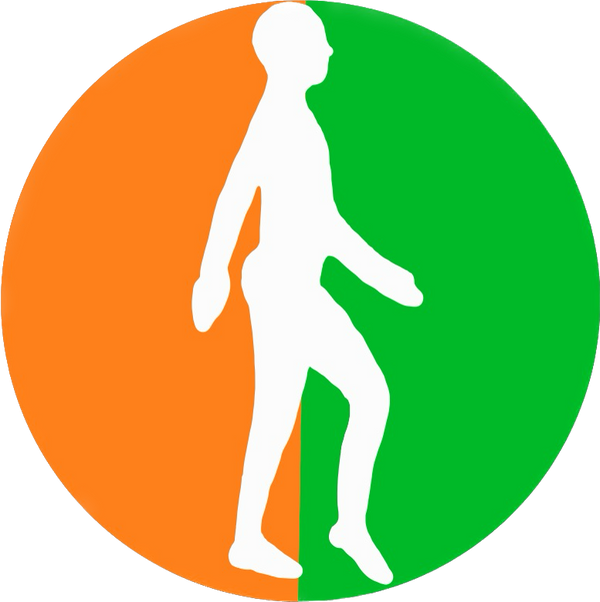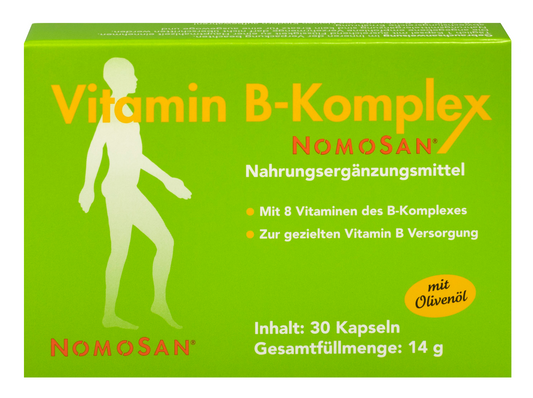Nuts and seeds have turned out to be true nutritional miracles. Whether walnuts, almonds, cashews or linseed - their diverse composition of unsaturated fatty acids, vegetable protein, fiber, vitamins, minerals and bioactive substances offers numerous health benefits. In this blog post, we take a closer look at why nuts and seeds are not only delicious, but also a valuable part of a healthy diet.
nutritional richness of nuts and seeds
Nuts and seeds are energy and nutrient dense foods. Despite their calorie content, they are rich in vital nutrients, including:
- High-quality plant-based protein : A handful of mixed nuts (about 25 g) contains about 4.5 g of protein.
- Unsaturated fatty acids : Nuts such as walnuts and flaxseeds provide important omega-3 fatty acids, which can contribute to normal heart function.
- Fiber : Almonds, chia seeds and walnuts are rich in fiber and support intestinal health.
- Vitamins and minerals : Nuts contain vitamin E, magnesium, calcium and iron, which perform important functions in the body.
Nuts and seeds in the prevention of cardiovascular diseases
Eating nuts and seeds is linked to a healthy cardiovascular system. Many nuts, especially walnuts, help maintain normal blood cholesterol levels. This link is due to their high content of unsaturated fatty acids, fiber and phytosterols. They also contain antioxidants such as vitamin E and phenolic compounds that support healthy vascular function.
The European Food Safety Authority (EFSA) has confirmed that daily consumption of walnuts can help maintain the elasticity of blood vessels, which in turn is an important sign of cardiovascular health. It is recommended to consume about 30 g of nuts daily to benefit from these advantages.
Positive effects on weight
Although nuts and seeds are high in calories, studies have shown that eating them does not necessarily lead to weight gain. On the contrary, nuts can promote satiety and reduce hunger. This could explain why they are associated with a lower risk of overweight and obesity. The fiber and protein they contain in particular help to regulate hunger and control energy intake.
A systematic review and meta-analysis found that daily consumption of up to 42.5 g of nuts can be integrated into a balanced diet without leading to weight gain. However, portion size should always be considered.
Nuts and seeds in the prevention of type 2 diabetes
There is evidence that nuts and seeds may also play a role in the prevention of type 2 diabetes. High consumption of these foods could reduce the risk of type 2 diabetes, particularly through their positive effects on body weight, blood sugar control and insulin sensitivity.
Regular consumption of nuts and seeds could help to better regulate blood sugar levels and thus reduce the risk of diabetes in the long term. The fiber and unsaturated fatty acids in particular play an important role in stabilizing glucose and lipid levels in the blood.
protection against oxidative stress and inflammation
Another important aspect is the ability of nuts and seeds to protect against oxidative stress. They contain numerous antioxidants such as vitamin E and phenolic compounds that can neutralize free radicals in the body. Oxidative stress is associated with a variety of chronic diseases, including cardiovascular disease and cancer.
In addition, some studies have shown that eating nuts and seeds may have anti-inflammatory properties. These anti-inflammatory effects may be particularly important for people with chronic diseases.
Fiber for healthy digestion
Nuts and seeds are excellent sources of fibre. Fibre is essential for healthy digestion and helps maintain healthy gut flora. It helps the gut to function more regularly, which can reduce the risk of digestive problems such as constipation.
In addition, fiber can improve insulin sensitivity and help regulate blood sugar levels. In the long term, a high-fiber diet can reduce the risk of cardiovascular disease and type 2 diabetes.
Nuts and seeds as a source of omega-3 fatty acids
Certain nuts and seeds, such as walnuts, flax seeds and chia seeds, are rich in omega-3 fatty acids. These fatty acids contribute to normal heart function and support brain health. The body is unable to produce omega-3 fatty acids on its own, which is why it is important to get them from food.
Nuts and seeds primarily provide alpha-linolenic acid (ALA), a precursor to the longer-chain omega-3 fatty acids found in oily fish. However, since the body has limited ability to convert ALA into eicosapentaenoic acid (EPA) and docosahexaenoic acid (DHA), it may be necessary to incorporate additional sources such as fish or algae oil to meet omega-3 fatty acid needs.
Nuts and seeds as a source of iron
Many nuts and seeds, such as pumpkin seeds and cashews, are rich in iron. Iron is crucial for transporting oxygen in the body and supports the immune system. However, the iron in nuts and seeds is non-heme iron, which is less efficiently absorbed by the body than heme iron from animal sources.
However, the absorption of plant-based iron can be increased by combining nuts and seeds with foods rich in vitamin C. For example, eating pumpkin seeds along with an orange helps improve iron absorption.
Summary and Recommendation
Nuts and seeds offer numerous health benefits and should be included in our diet on a regular basis. They are rich in unsaturated fatty acids, vegetable protein, fiber and antioxidants that can reduce the risk of cardiovascular disease, type 2 diabetes and some types of cancer. They also support weight control and gut health.
It is recommended to consume around 30g of nuts daily to reap these benefits. It is important to choose unsalted and unsweetened varieties. A varied selection of nuts and seeds can help provide the body with a variety of nutrients and maintain long-term health.
Here are some helpful tips on how to include more nuts and seeds in your diet:
- as a simple snack on the go
- Sprinkle them over your breakfast: on porridge, yoghurt or low-sugar muesli.
- Add them as a topping to salads, curries, soups or stir-fries.
- spread nut/seed butter on whole grain bread or crackers
- Add a tablespoon of nut/seed butter to your smoothie.
- add them to baked goods.
Sources:
- That's why it's so healthy to consume nuts and seeds regularly | Eufic
- Health Benefits of Nut Consumption - PMC (nih.gov)
If you want to learn more about flaxseed, click here:
- Flaxseed: The versatility of a superfood – Nomosan Nutraceuticals
- The effect of linseed and psyllium against constipation: Two important – Nomosan Nutraceuticals
- Natural Remedies for Constipation: Insights into Effectiveness – Nomosan Nutraceuticals
- Psyllium: A versatile natural product for health and nutrition – Nomosan Nutraceuticals

